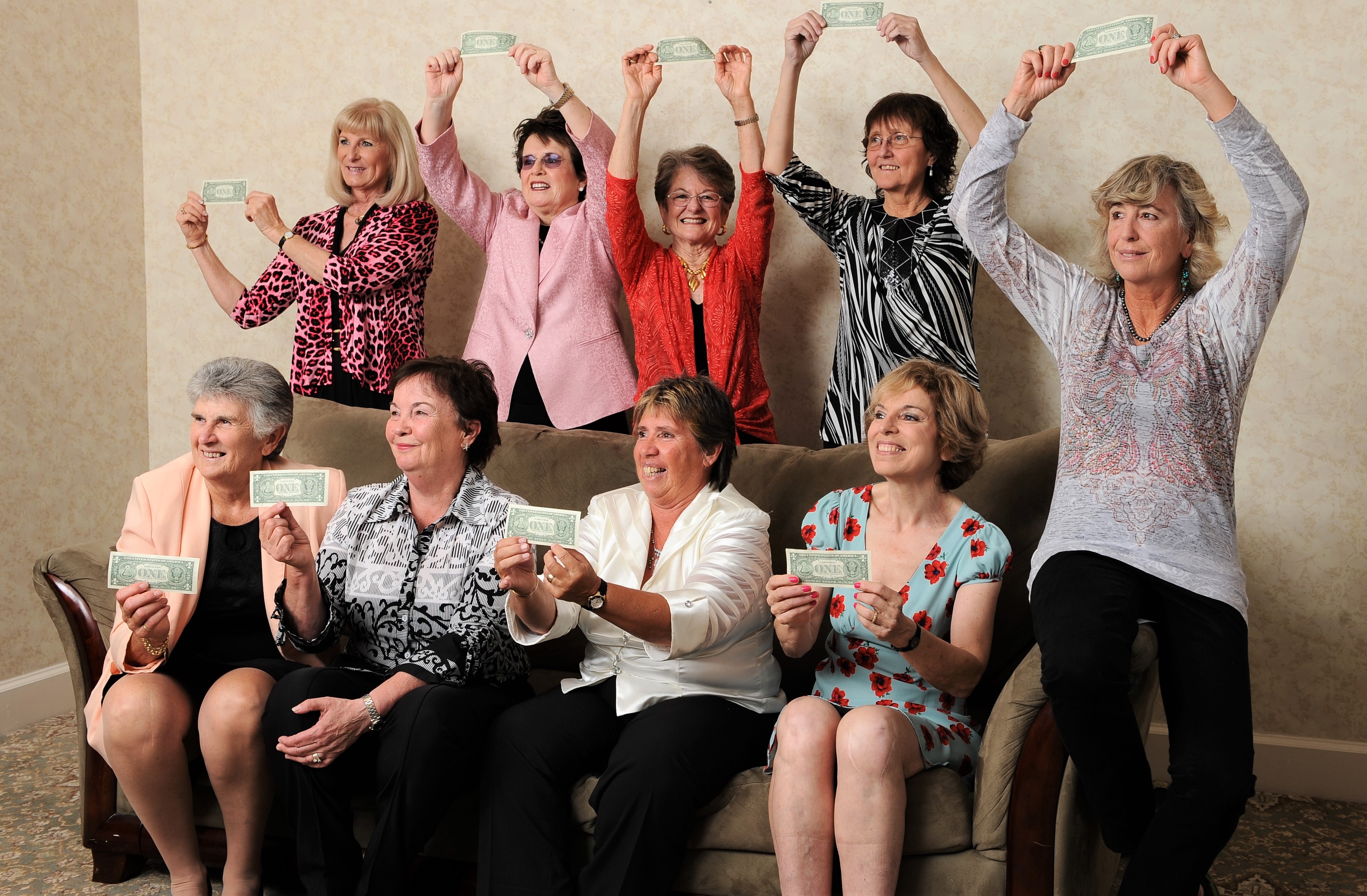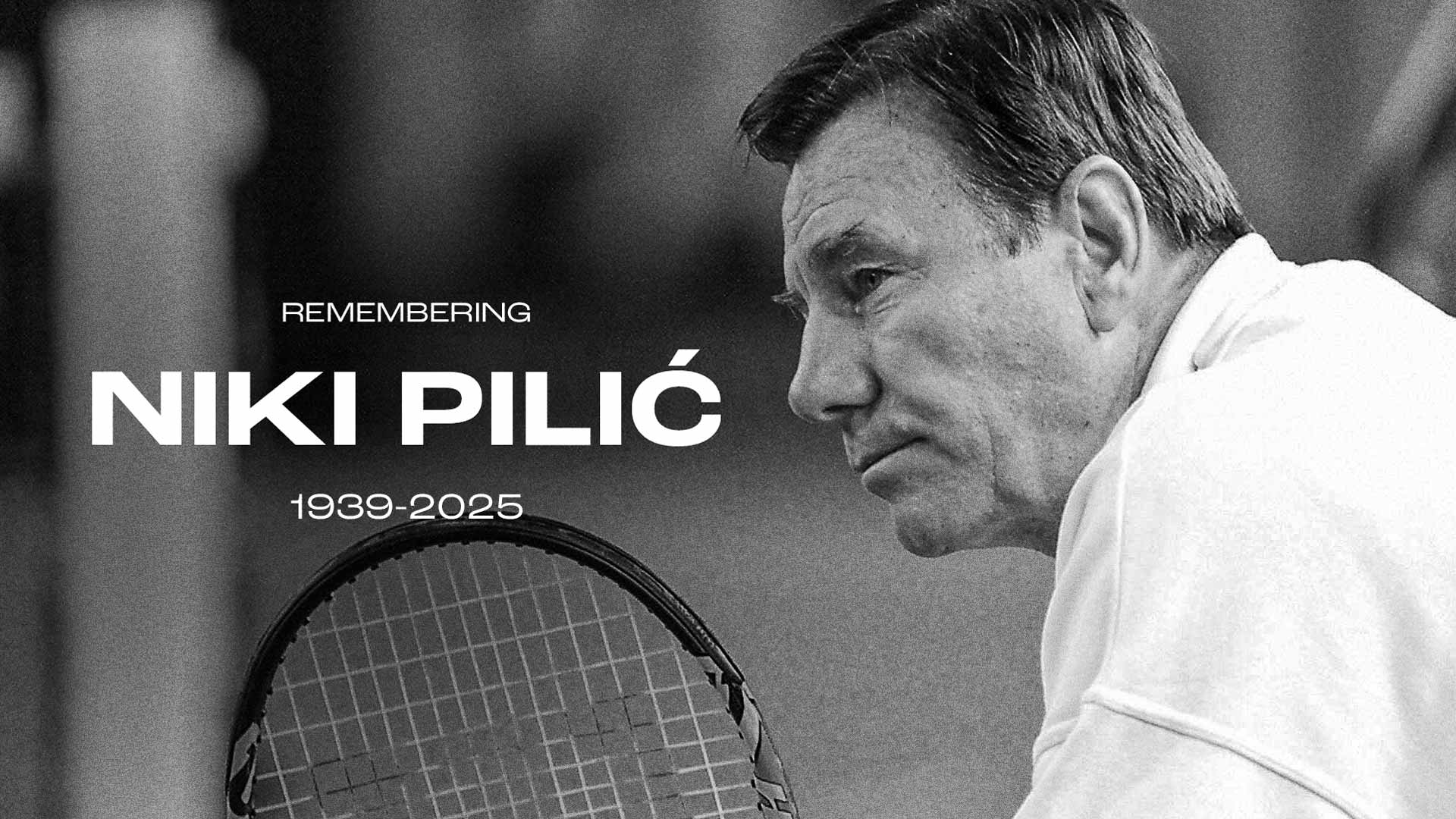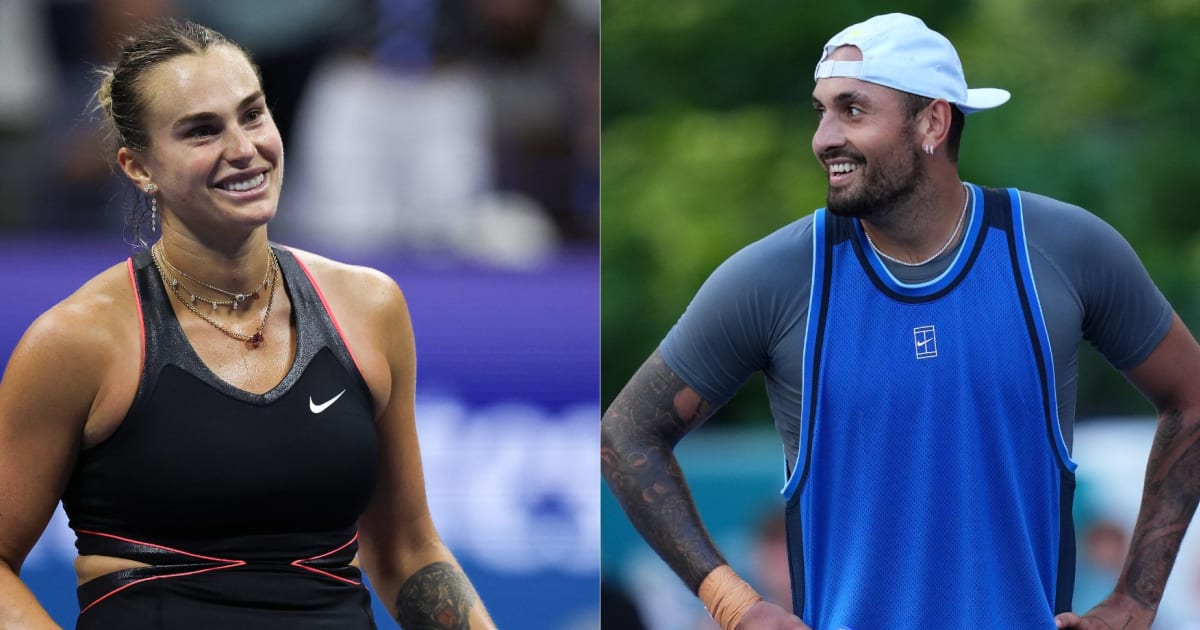The Original 9: 55 Years of a defiant revolution

The nine players that become synonymous with the birth of women’s professional tennis are Peaches Bartkowicz, Rosie Casals, Judy Dalton, Julie Heldman, Billie Jean King, Kristy Pigeon, Kerry Melville, Nancy Richey and Valerie Ziegenfuss. Among their number: Grand Slam singles and doubles champions, world and national No.1s, perennial Top 10 stars, Hall of Famers.As a group, they represented the achievements and aspirations of a cross section of tour life -- from 20-year-old politically minded college student Pigeon to 32-year-old Dalton, who worked as an accountant to subsidize her tennis career. At the center of it all was the charismatic and determined King, with Casals at her side.WTA honors Original 9 and Gladys Heldman on 55th anniversary of $1 contractsAt a time when their male counterparts could be paid eight times as much, the players found a visionary advocate in Gladys Heldman, the savvy publisher of World Tennis magazine. Heldman called on her corporate and community contacts to stage the Virginia Slims Invitational at the Houston Racquet Club -- and women’s tennis was on its way.Fifty-five years ago, on September 23, 1970, they made history together. Today, we revisit the individual journeys of the remarkable women who made up the Original 9.A pioneer of the two-handed backhand and one of the great junior players of all time, Jane ‘Peaches’ Bartkowicz began collecting her haul of 17 US national titles at age 11 and kept it up through the 18s, typically winning her age bracket and the one above. In 1964, she also won the Wimbledon juniors at 15-years-old. As a professional, Bartkowicz reached the quarters at the US Open in 1968 and 1969, won the Canadian Open in 1968 and never lost a match when representing the United States. After retiring from the tour in her early twenties -- her son, Kevin, was born in 1973 -- Bartkowicz coached tennis before embarking on a career with the US Federal Court in Detroit. Proud grandmother to April, Bartkowicz has spoken openly about her challenging health issues, including a bone marrow transplant in 2015, and the strength she draws from her Original 9 “sisters” and wider WTA family.Known as ‘Rosebud’ and ‘The General’ -- a nod to her importance as a political operator alongside Billie Jean King -- Rosie Casals was only 22 when she won the Virginia Slims Invitational. Speedy and agile, she reached two Grand Slam singles finals, both at the US Open, where she was runner-up to Margaret Court in 1970 and King in 1971. A Top 10 regular in singles, she became one of the all-time greats in doubles, her haul of 112 trophies (including five Wimbledon titles and four US Opens) bettered only by Martina Navratilova. She also won three mixed majors. Inducted into the International Tennis Hall of Fame in 1996, Casals is kept busy by the Love & Love Tennis Foundation, which she founded with fellow former player Tory Fretz in support of youth in California’s Coachella Valley. Her wife, Connie Spooner, was the first athletic trainer on the WTA Tour.Affectionately known as Old Fruit, Judy Dalton was already 32 when she finished runner-up to Rosie Casals at Houston. A serve-volleyer in the best Australian traditions, Dalton achieved the career Grand Slam in doubles, winning five of her nine Slams with Margaret Court. In singles, her peak came with a run to the final at Wimbledon in 1968, where she dispatched Court and Nancy Richey before succumbing to Billie Jean. A member of two victorious Fed Cup squads, she later served as captain of the Australian team and for more than 30 years helped foster the game as president of an organization now known as the Women’s Tennis Foundation. After her husband, Dr. David Dalton, passed away in 2009, Dalton moved from their farm in southwestern Victoria back to Melbourne. She has a daughter, Samantha and son, Edward, and is grandmother to Sophie and Abby.Gladys Heldman's daughter, Julie Heldman, was injured when the Virginia Slims Invitational took place, so she missed the dollar bill photocall but played a ceremonial point against Billie Jean to affirm her commitment. By that point, she had won the Italian Open, in 1969 -- the year she ranked No.5 in the world -- and would ultimately reach the semifinals at three of the four majors. As her playing career wound down, the articulate Heldman’s talents were showcased by tennis commentary and articles for a range of newspapers and magazines. Having received her BA from Stanford in 1966, she earned her JD from UCLA’s Law School in 1981; after practicing law for several years she welcomed a daughter, Amy Rebecca, and went to work with her husband Bernard Weiss at the couple’s Los Angeles-based eyeglass manufacturing company. Her memoir, “Driven: A Daughter’s Odyssey,” was published in 2018.Billie Jean King wasn’t even 27 at Houston, but for her wisdom and leadership she was known as the Old Lady. By this point she had won five Grand Slam singles titles and spent time as No.1 -- yet she was far from done, on court and off. While figuring as a political force, it was during the first half of the seventies that King was also at the peak of her playing powers. In 1971 alone she won 17 singles titles and became the first female athlete to earn $100,000 in prize money in a single year. In 1973 she rallied her fellow players to found the WTA and defeated Bobby Riggs in the Battle of the Sexes. By the time she wrapped her playing career, King owned 39 Grand Slam titles but her advocacy for equal rights has transcended the sport. A dynamic partnership with her wife, Ilana Kloss, continues to have transformational impact through the Billie Jean King Leadership Initiative, the Women’s Sports Foundation and the Billie Jean King Cup.Calm but assured, and armed with a tricky sidespin forehand, Kerry Melville Reid was, like Judy Dalton, a standout in a golden age for Australian tennis. Runner-up at both the US Open and first Virginia Slims Championships (precursor to the WTA Finals) in 1972, she went on to capture her home Grand Slam in Melbourne in 1977. A singles Top 10 regular across the 1970s who peaked at No.5, she also won three doubles majors, including Wimbledon in 1978 alongside fellow Aussie Wendy Turnbull. Melville married ATP player and Boston Lobsters World Team Tennis teammate Raz Reid in 1975 and played her last major at Flushing Meadows in 1979, with him as her coach. The couple settled in Hilton Head, South Carolina, where they were club pros and raised daughters Kati and Kimi, later launching a successful fly fishing business.The youngest member of the Original 9, lefthander Kristy Pigeon was 20 years old when she played her part at Houston. Junior champion at Wimbledon and the US Nationals in 1968, she also reached the round of 16 at the All England Club that year and again in 1969 and ranked among the Top 10 Americans. Having attended Mills College and UC Berkeley, where she engaged with the women’s liberation movement, Pigeon studied biology at grad school after she left the tour. For 11 years, she ran her own tennis school in Sun Valley, Idaho before founding the Sagebrush Equine Training Center for the Handicapped, which became one of the nation’s premier horse-assisted therapy venues -- she also met her husband, John Prudden, when he volunteered at the facility. After stepping down as executive director, she turned her attention to the conservation of wetland habitats and wildlife.When she signed up for the Virginia Slims Invitational, Nancy Richey was already a former world No.2 and two-time Grand Slam singles champion, having been victorious at the Australian Championships in 1967 and the first major of the Open era at Roland Garros in 1968. Among the scores of titles the tenacious Texan baseliner won as an amateur and then as a professional, Richey captured a record six consecutive US Clay Court Championships and four Grand Slam doubles crowns. Inducted into the International Tennis Hall of Fame for her accomplished playing career in 2003, she later joined the mental health advocacy of her brother, men’s tennis legend Cliff Richey, after he published his book, “Acing Depression, A Tennis Player’s Toughest Match.” When the WTA Finals were staged in Fort Worth in 2022, one of the singles player groups was named in Richey’s honor.










